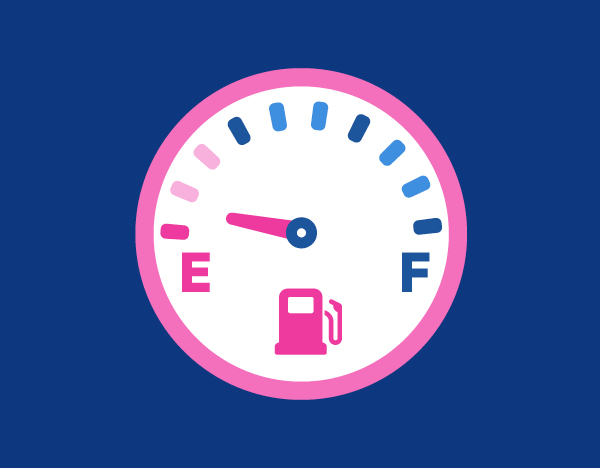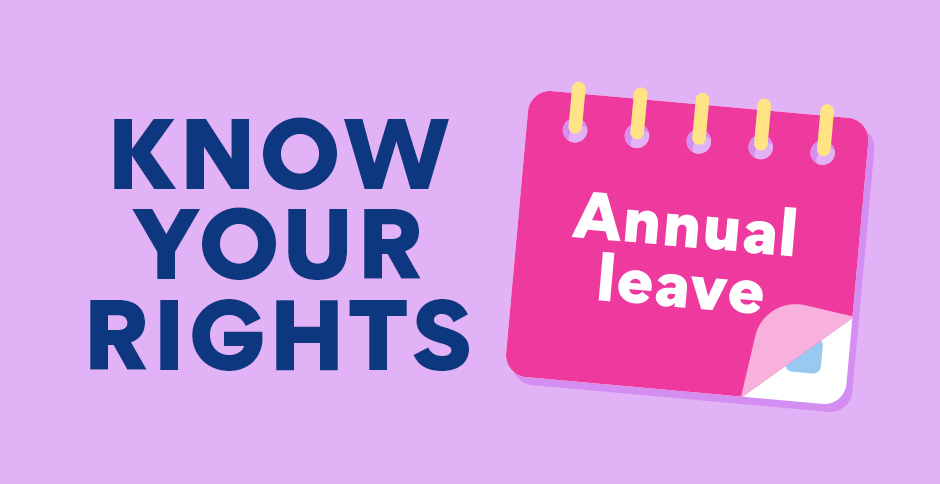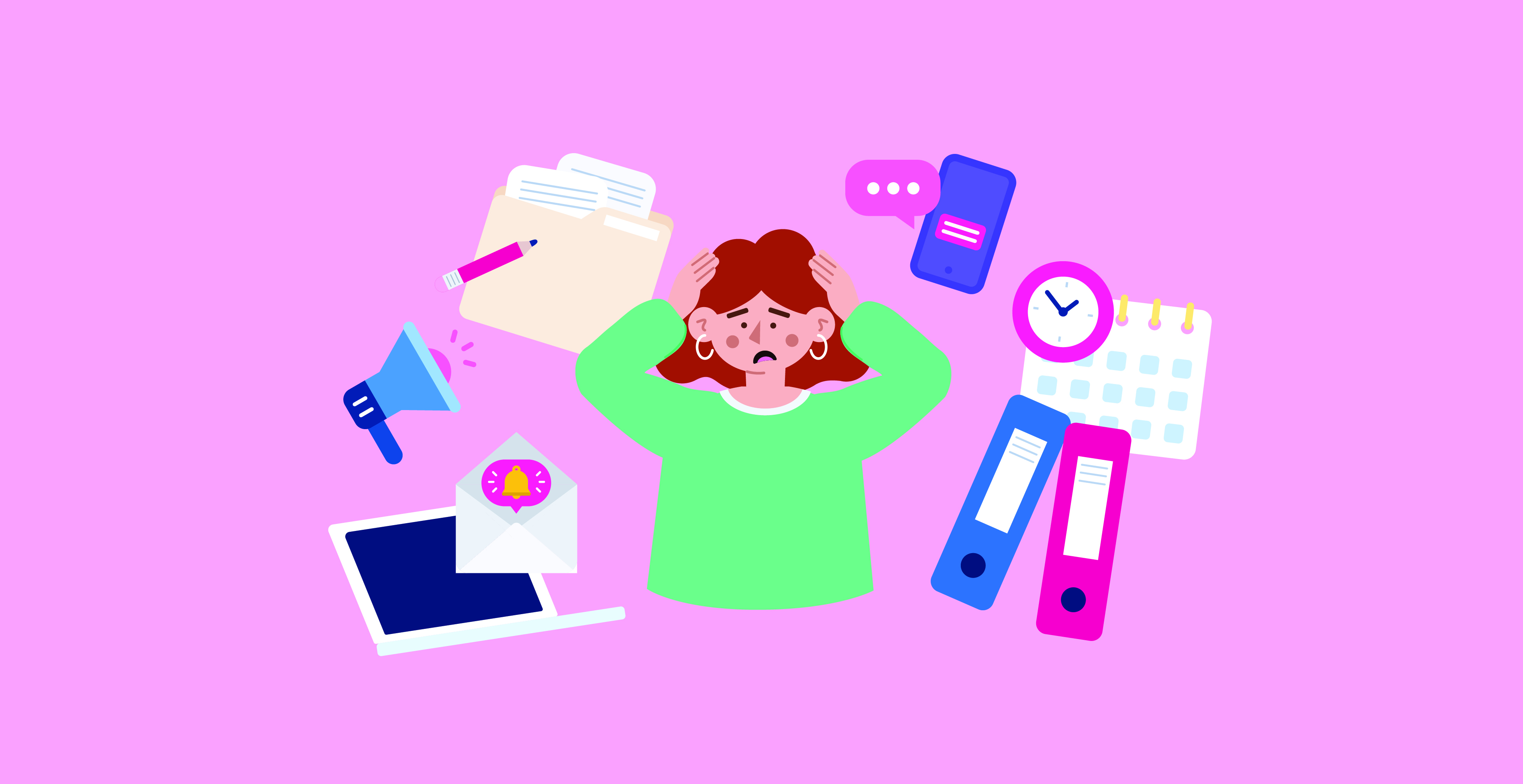Struggling to sleep after a long day, or having difficulty getting up for work in the morning? Feeling like there’s no point to your work, a low mood, or a lack of interest in what you do? It could be burnout that’s at play.
There’s a certain amount of work-related stress in most of our lives, but this is a normal reaction to things like occasional tight deadlines or an unusually heavy workload.
But burnout is different. It’s a more serious type of chronic stress that leaves you physically and mentally exhausted, says Alex Kingsmill, Life and Career Coach at Upstairs Coaching. It can cause you to question the work you’re doing, and your ability to perform.
And it’s quite common – 62% of New Zealanders say they’ve felt burnt out at some point in the past year.
In times where we’re dealing with a lot of changes or extra demands on us, there could be greater risk of work burnout – so it’s especially important to look out for.
Here’s how to recognise burnout, and what you can do to work through it.
Signs you could be suffering burnout
Kingsmill says people experiencing burnout may go through one or more of the following:
- Depletion: struggling to get to work, feeling drained, lacking energy and focus, not sleeping well and becoming sick.
- Detachment: not enjoying your work anymore, being critical and cranky with the people around you, feeling pessimistic and isolating yourself.
- Ineffectiveness: feeling apathetic, being less productive, becoming snowed under and missing a sense of satisfaction.
Career burnout usually creeps in quite insidiously: slowly but surely over time. Kingsmill says the very nature of career burnout can make it physically and mentally difficult to draw up the energy you need to address it.
“Over time, you may become increasingly tired and sick, depressed and anxious, and overwhelmed and unable to effect positive change,” she says.
Common causes of burnout
Everybody’s experience is different, but there are common causes of burnout at work. These may include:
- Poor work-life balance
- Feeling constantly overwhelmed by your workload
- Lack of support
- Mental health challenges
- Taking on more work than you can handle
- Not taking leave / breaks when you need to
- Expectations to work longer hours.
Six ways to get through work burnout
A series of small steps can encourage positive changes and won’t leave you feeling overwhelmed, Kingsmill says. Here’s how she recommends dealing with burnout:
- Identify the source of your burnout: Work out where your stress is actually coming from, creating a list. Then identify one thing you can do this week to address the pressure against one or more of the things you’ve listed. Start small first, then see if you can work up to bigger actions.
- Seek help: Keeping your experiences stuffed inside can make you feel worse and limit your opportunities for recovery. “Identify a trusted supervisor and speak to them about what you're experiencing, make use of Employee Assistance Programs, choose a sympathetic friend and have a chat,” Kingsmill says. Sometimes simply talking about your feelings can offer some relief.
For example, speak to management about taking on additional staff, research available training options, explore the possibility of working from home one day a week, or collaborate with your manager to identify clear goals and actions for yourself,” she suggests.
- Set boundaries: Burnout can be really overwhelming, so as you're getting back on track, consciously set boundaries and commit to saying ‘no’ to any additional demands made of you. These tips on how to set boundaries and say no at work could be a good place to start.
- Find joy outside of work: It might be a good coffee in the sun, a podcast on a walk, fresh flowers on your windowsill, or even a regular catch up with a friend. “Consciously choosing positive emotion will enhance wellbeing and reinstate a critical sense of autonomy,” Kingsmill says.
- Turn off: Screens can drain huge amounts of time and energy. While you're actively recovering from career burnout, try limiting your screen time as much as possible.
- Take care of your health: Sleeping, eating and exercising well are important for mental and physical wellbeing. Frustratingly, it can be harder to keep these healthy habits up in times of stress – but not tending to your health can compound the original stress and hold you back from recovering.
It’s not unusual to feel overwhelmed by burnout; it can really take over. But tackling burnout can be a matter of breaking things down into manageable steps: first sorting out where it’s coming from, then working through small changes to get you back to a better place.
Remember, you don’t have to handle it alone – there’s support available. BeyondBlue has advice and resources on stress, burnout and mental health in general. Head to Health also offers a collection of resources and services.
Source: Independent research conducted by Nature of behalf of SEEK, interviewing 4000 Kiwis annually. Published October 2023.
Read more:
- 5 steps to start improving your work-life balance
- 5 signs it’s time to take a mental health day
- Are you ticking the work-life balance box?



